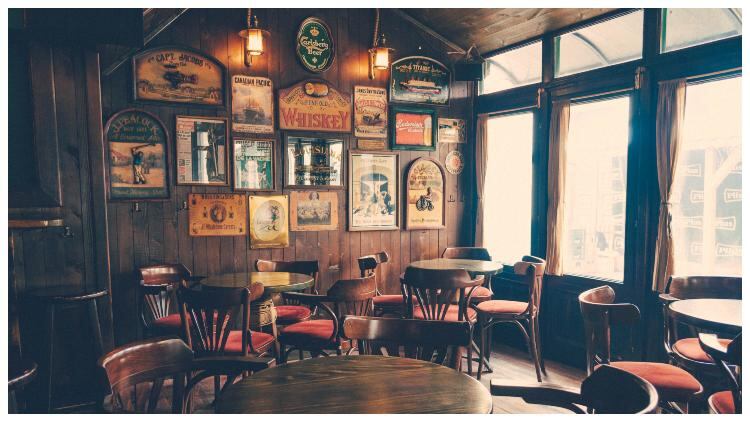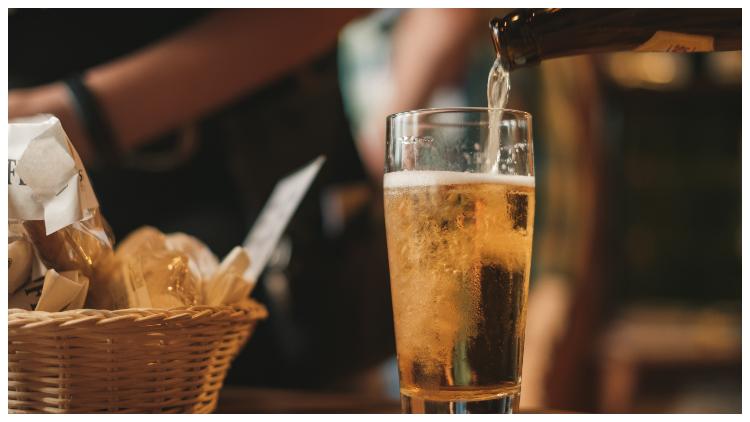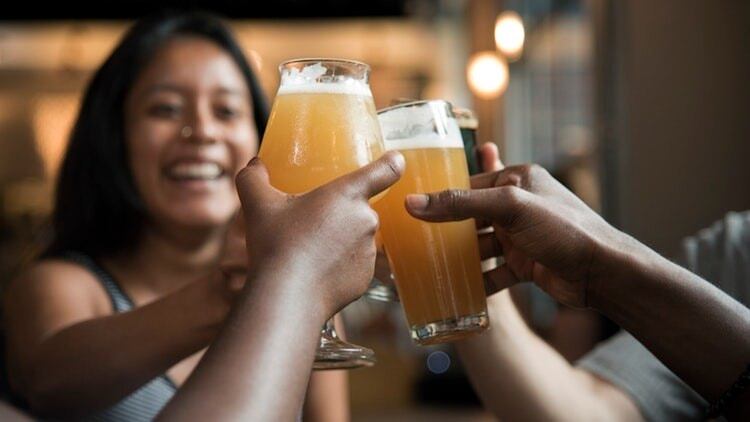While new research from the Office of National Statistics (ONS) shows the UK pub and bar sector may be bouncing back after years of insolvencies, publicans are still seeing their fellow licensees close their doors for the final time.
“You’ve got to have tough skin, you’ve got to have experience, you’ve got to know your finance, you’ve got to work at your business plan, you’ve got to be resilient,” told Amy Durnall to the Morning Advertiser, licensee of the White Hart, Chilsworthy, in Cornwall.
“To make it a success, you've got to work so hard and that's why I think so many people fail.
“The days are gone when people just walked through the door. Nowadays, you’ve got to do so much more to get them through the door in the first place.”
A turning tide
In 2018, a huge 80% of Brits, who expressed an opinion, witnessed at least one pub close, and 21% saw five or more close, according to research conducted by YouGov. By 2019, the Campaign for Real Ale (CAMRA) revealed 14 pubs were closing their doors each week.
Despite the number of pub closures slightly dropping from a rate of 18 a week from the year before, the figure remained too high and, without swift action, CAMRA argued it was unlikely that many of them will reopen.
However, new research by ONS has shown the number of small pubs and bars – those with fewer than 10 employees – increased by 85 (0.4%) to 22,925 in 2019.
So while the tide is turning on the rate of pub closures, why are licensees like Durnall still seeing pubs at risk of closure?
“There’s two pubs within a mile and a half of our pub that have closed,” she said.
“One was a freehold where the landlords just closed the doors. The other was owned by a company where the VAT man just went in and shut them down one Friday lunchtime.
“The tenant who was there said they had to pay out so much before they even had someone walk through the door and buy a pint. I think it was something like over £5,000 a week to run the place before they could even make a profit.”
On top of the burden of business rates and beer duty, licensees are enduring a combination of factors such as falling footfall, consumers drinking less, soaring property prices that all lead to many owners shutting down their pubs.
The gaffer behind the bar
Former licensee Trevor Ford said: “It saddens my heart to see much-loved pubs ending up like this that were once the beating heart of the community – now just a shell.
“Everywhere, there are pubs now boarded up or have been turned into flats or other uses.”
Ford was in the trade for 25 years. He said that all the changes he has witnessed over the years, he would never have envisaged back then.
He ran the Old Cross in Langley, near Birmingham in the West Midlands, for 13 years, spent eight years as a manager for Mitchell & Butlers (M&B), and five years as a leaseholder.
“Things ran like a dream as a lease for three to four years,” he continued. “But when things got tight and I couldn’t negotiate with the pubco, I decided to sell up.”
He explained that in December 2006 he left and within 18 months, the pub was closed and boarded up.
“It was a sight that broke my heart. Most pubs back when I first got into the trade were managed houses, M&B, Banks’s, the pubs were run by professional licensees.
“The gaffer in the shirt and tie standing in the hatch somehow commanded more respect back then and it was a hard trade to get into, as I remember.
“But then the pubcos employed area managers or business development managers to oversee and recruit licensees for these pubs and this is where things started to go wrong.
“Many of the area managers did not come from the pub background but probably had qualifications in business studies. But these people were tasked to find people to run these pubs.
“From being a hard trade to get into, it turned out to be a trade anybody could enter.”
Ford felt the trade became run unprofessionally. He said people who didn’t have pub trade experience or a clear business plan could walk into a pub and take on what they thought would be a dream venture.
“They were given loads of support at first but when things didn’t turn out as good as expected, the help dried up.
“Standards slipped, pubs became scruffy and the gaffer in the hatch in his shirt and tie was replaced by a bloke in a vest, shorts and Crocs.”
Highs and lows
Durnall also expressed views of how any folk could walk into the pub trade but would also not anticipate what would lie ahead for them.
“Pubs close because people think it’s easy. They think ‘I can run it, that’s a great idea’, they think it’s an extended social life,” she said.
After starting off as a tenant for an Ei pub, Amy met her partner Ian Durnall and together they decided to tackle the pub world. They sold their four-bedroom house and invested in the White Hart pub in 2017.
“We took a real risk. After we paid all the exchanges, we had about £50 left in the bank.
“We're in our third year now of trading now and we're doing OK. But things are so tight every month and this is only when I’m working 150%, seven days a week, 24 hours a day.
“I don’t think people understand what’s involved in running a pub and the financial aspects. It’s basically your life, and the pub and your customers come first. It’s emotionally and physically draining.”
But Durnall said she still loves it and wouldn’t change it.
“I do have my highs and lows. I have my days where I wished to god I had never stood behind a bar or worked in a commercial kitchen. But then you have your great days – when it’s fun, customers are in and you're serving great food.
“But it’s really disheartening when you’re sitting in the kitchen waiting for orders to come in, you’ve got the oven on, you’ve got the fryer on, you’re paying someone behind the bar, a kitchen assistant and it can be really demoralising when you don’t get anybody in.”
Durnall explained her and her husband once had a regular customer that would bring his colleagues, who would bring their mates as well. But then one day, the regular customer decided to go on a health kick and cut out the booze.
“We've now lost that trade,” she said.
It is times like these that could be viewed as a threat to the local pub. New research revealed that operators are set to see fewer consumers opting for an alcohol-infused visit with one-in-four pub visits now being alcohol-free, according to KAM Media.
Of course, January is tough month for publicans, but as consumers look to lead healthier lifestyles and drink less alcohol beyond just the first month of the year, what kind of burden is this having on pubs?
Keep the tradition alive
“There’s a scary time ahead but we want to keep the tradition going. It’s one of the longest running traditions in Britain, the local pub. And, we’re a rural pub, so we really do rely on word of mouth, locals coming in and people travelling to us.
“It's really hard as a person, as a couple, as a family, because it’s a lifestyle, not just a job and we’ve sacrificed ourselves as a result.
“I think the next two years will make it or break it for small pubs.”
The good news is that many successful campaigns have been fought to stave off closures. There are numerous thriving pubs up and down the country that would otherwise have been converted to private houses or heaps of rubble without the efforts of local campaigners.
CAMRA’s former national chairman Jackie Parker said: “Pubs are a very important part of our national culture and are valuable community assets that help to combat loneliness and social isolation.
“It’s great we have seen a drop in the number of pubs closing, showing that our hard-fought campaign to get planning protection for pubs was worth it.
“Protecting pubs in the English planning system was a necessity and a welcome move from the Government. However, it’s taken nearly two years for the trickle-down effects of the planning changes to show. Our politicians should back the Save Our Pubs campaign in full, and show they are squarely behind pubs.”
Durnall also explained of her recent connections with the Licensed Trade Charity, which offers support for licensed drinks trade people.
“I thought we were out here struggling all on our own. I never knew they existed and since I’ve found them, I’m straight on the phone, asking for help for this and that.
“I just didn’t know there was that support out there for publicans or for people who just work in the trade. I thought that was amazing. It’s been a relief.”




